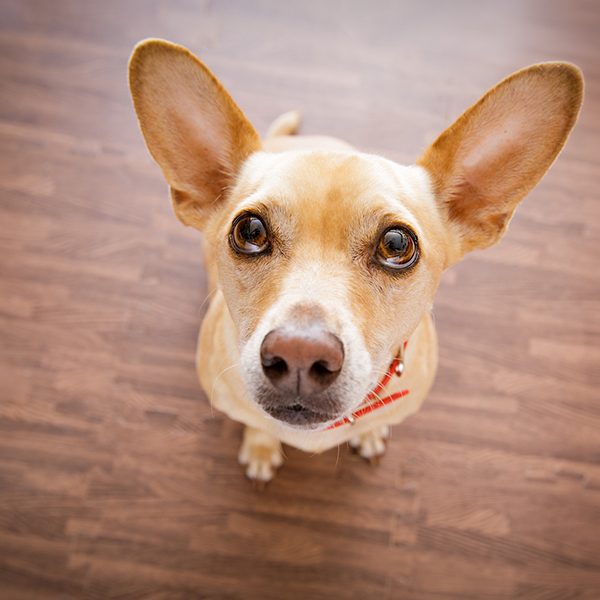Why Does Your Dog Stare At You

Have you ever wondered, "Why does my dog stare at me?" Those soulful eyes fixed on you, unwavering, can leave any dog owner curious and perhaps a bit uneasy.
Dogs are known for their expressive eyes. Understanding why dogs stare and what they communicate through their gaze is crucial for strengthening your unique bond with them.
In this blog, we'll delve into the mystery behind your dog's eye contact, explore the reasons behind that penetrating stare and, of course, provide some solutions for better understanding and managing this behaviour.
So if dog staring has been puzzling you lately, or if you’ve recently looked up “dog staring at me” online, read on — this blog has you covered!
Understanding the canine stare
One of the most common questions among dog owners is, "Why does my dog stare at me?" This behaviour can be unsettling, especially if you're unsure about its underlying meaning.
Dogs are known for their non-verbal communication, and staring is a significant part of that. However, deciphering the message behind those soul-searching eyes can be a challenge.
As descendants of wolves, dogs have inherited the communicative power of eye contact. Staring is a fundamental part of canine communication, conveying a range of emotions and intentions. Recognising the nuances in their gaze is essential for accurately interpreting your dog's emotional state.
Various emotions can be expressed through a dog’s eye contact. A soft, gentle gaze often signifies affection and trust, while prolonged eye contact might convey a challenge or a request for attention. Dog eye contact can also mean they’re soliciting play, sharing empathy or seeking reassurance.
Reasons why your dog might be staring at you
Dogs can stare at you for many reasons. Understanding the context and accompanying body language of your dog is crucial for discerning whether the gaze is a positive or negative signal.
Here are the possible reasons behind the stare:
- Seeking attention — Dogs are social creatures, and a lingering stare might be their way of saying, "Hey, pay attention to me!" Ensuring you allocate quality time for bonding activities can alleviate their need for constant eye contact.
- Expressing love — A soft, adoring gaze usually means your dog is expressing affection. Embrace these moments, reciprocate the love and strengthen the emotional connection between you and your furry companion.
- Communication of needs — Dogs rely on non-verbal cues, and staring is one way they communicate their needs. It might indicate that they are hungry, need to go outside or simply desire companionship.
- Anxiety or stress — On the flip side, prolonged or intense staring can signal stress or anxiety. Environmental changes, unfamiliar stimuli or an underlying health issue might trigger this. Observing other behavioural cues is crucial to identify and address the root cause.
Addressing excessive staring
If you find your dog's staring becoming excessive or if it seems linked to stress, it's time to intervene. Here are practical steps to manage and address this behaviour:
- Physical exercise — Regular exercise is not only vital for your dog's physical health but also for their mental well-being. Engaging in activities that stimulate both their body and mind can reduce stress and restlessness.
- Structured routine — Dogs thrive on routine. Establishing a consistent daily schedule for feeding, walks and playtime can create a sense of predictability, reducing stress-induced staring.
- Veterinary check-up — If you notice abrupt changes in your dog's behaviour, including staring, it's wise to consult a veterinarian. Underlying health issues could be contributing to their stress or discomfort.
How DogMaster Trainers can help
As you try to understand and respond to your dog's stare properly, consider the invaluable support offered by our experts at DogMaster Trainers. With over two decades of expertise, we are NZ's largest independent distributor of quality dog training products, including top-quality dog training collars.
Whether you need pet obedience training collars or collars for working dogs, we can provide the tools necessary to enhance communication and strengthen your bond with your furry companion.
Decoding the reason for your dog’s eye contact is an essential aspect of fostering a harmonious relationship. Understanding the nuances in their gaze allows you to respond appropriately, deepening the bond you share — and with DogMaster Trainers’ expertise in canine behaviour, you can navigate this with confidence.
Have questions or need more information about our products? Contact us today.

